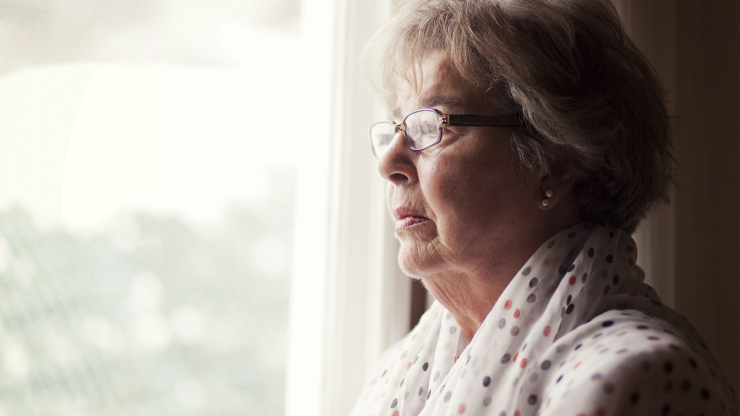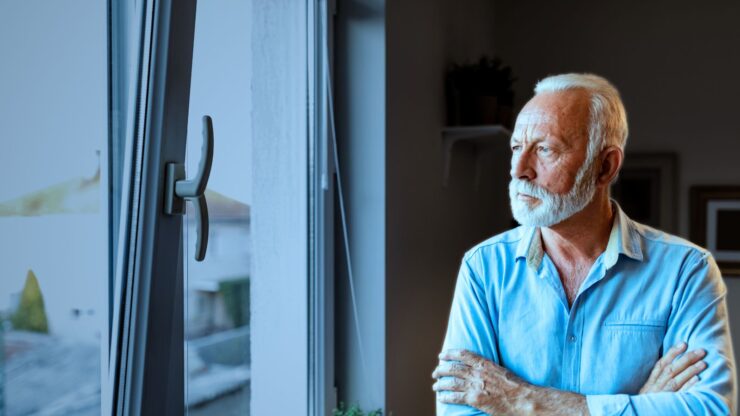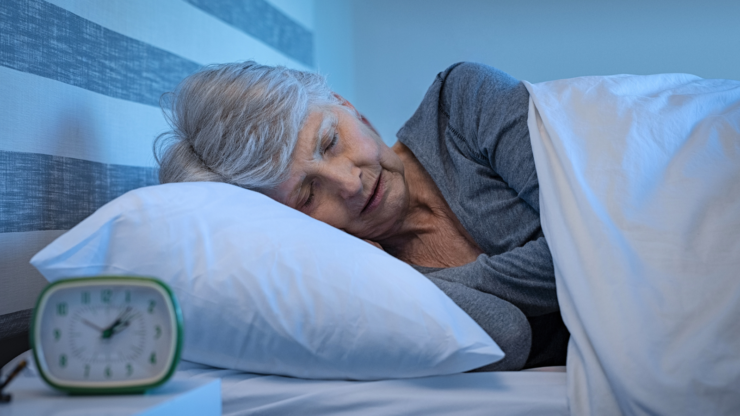
How Sundown Syndrome Can be Worse During Fall and Winter
Fall has arrived and it is typically a favorite season for many, but this time of the year can also have a huge impact on individuals in the middle stages of dementia. During Autumn, the days begin to get shorter and the transition period from daylight to nighttime can trigger varying anxiety levels, sometimes resulting in extreme reactions. This yearly occurrence can disrupt daily plans and truly affect the day-to-day life of someone suffering from dementia. This phenomenon is commonly referred to as Sundown Syndrome or “sundowning”. Sundowning or late-day confusion, is a group of symptoms that occur in someone with memory loss that can start around late afternoon and continue into the night. The increased amount of darkness can cause confusion and irritability for dementia patients. It’s important to note that sundowning is a disease, but a collection of symptoms that occur during this change.
How does sundowning work?
When the seasons begin to change, we receive less sunlight during daytime hours. Sundowning generally begins around dinnertime and continues into the night. Sundowning begins to show signs once the sun has set, upsetting the circadian rhythm of the individual. Circadian rhythms signal when to wake up and to sleep at night. Regardless, even the smallest changes in sunlight, such as a glare from an early sun setting can cause flare-ups.
Sundowner’s syndrome typically begins in the mid-to-late stages of dementia and lasts through the end stage of dementia, but it can begin to present even earlier for some individuals. Every situation is different and the progression of dementia and sundowning varies from person to person.
What are the causes or triggers of sundowning?
The causes of sundowning are not well understood, but possible causes and triggers of sundowning, include:
- Low lighting: the casting of shadows on the wall can heighten the feeling of confusion and lead to anxiety.
- Oversleeping: individuals who are older may spend more time napping which may trigger sundowning
- Internal imbalance: hormonal changes or disruptions in the internal biological clock, which regulates cognition between waking and sleeping hours, maybe a factor.
- Winter: In some cases, winter’s shorter days may amplify or bring on sundowning, because waking up in the dark and experiencing an extended, dark evening can trigger confusion.
- Tiredness in other people causes the person with dementia to become upset.
- Mood disorders, such as anxiety or depression
Sundowning syndrome is not a simple condition, but it is a common occurrence that many loved ones and caregivers struggle with. Below are 5 ways you can help prevent sundowning, reduce symptoms, and best cope:
- Look for triggers
- There are activities and environments that can trigger your loved one’s sundowning, things like fatigue, loud noises, discomfort, taxing activities, or changes in environment or caregivers. Use a smartphone or journal to track what triggers or worsens symptoms so you can avoid situations that promote agitation and confusion.
- Regular schedule during the day and evening
- Establish a regular and habitual routine every day. Daily routines can you’re your loved one feel safe by minimizing surprises and eliminating anxiety and confusion. People with memory loss find comfort in a daily routine.
- Keep them active
- Many people who experience sundowning have trouble sleeping at night. Fatigue is a common trigger of sundowning, and this can create a vicious cycle. The daylight-to-evening transition is easier for those who have had a full, active day, than those who have been in and out of a sleep state.
- Let light in
- Your loved one might experience sundowning as the result of changes in their circadian rhythm, which is the sleep-wake cycle. That’s why adjusting the light in their home might help reduce their symptoms.
- A good night’s sleep
- Focus on getting your loved one the best night’s sleep possible by reducing stimulants in the evening, such as caffeine and alcohol.
- Seek support
- If you have concerns, it’s best to speak with your loved one’s doctor. They can develop strategies and tips to cope with the symptoms and provide ways to support you and your family through this. It’s also best to rule out if there is an underlying issue causing possible symptoms.
LifeWorx has 20 years of experience in providing care and support to Alzheimer’s and dementia care. Our caregivers can offer your loved one a stable routine, mental stimulation, and support in comfortable surroundings to reduce the symptoms of sundowning. Contact us or visit one of our locations today and see how we can help your loved one transition during this new season and Winter too.
Find your peace-of-mind.
Explore LifeWorx’ in-home elder care services.
















